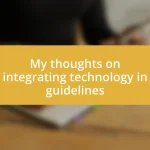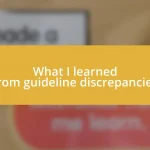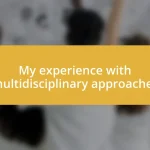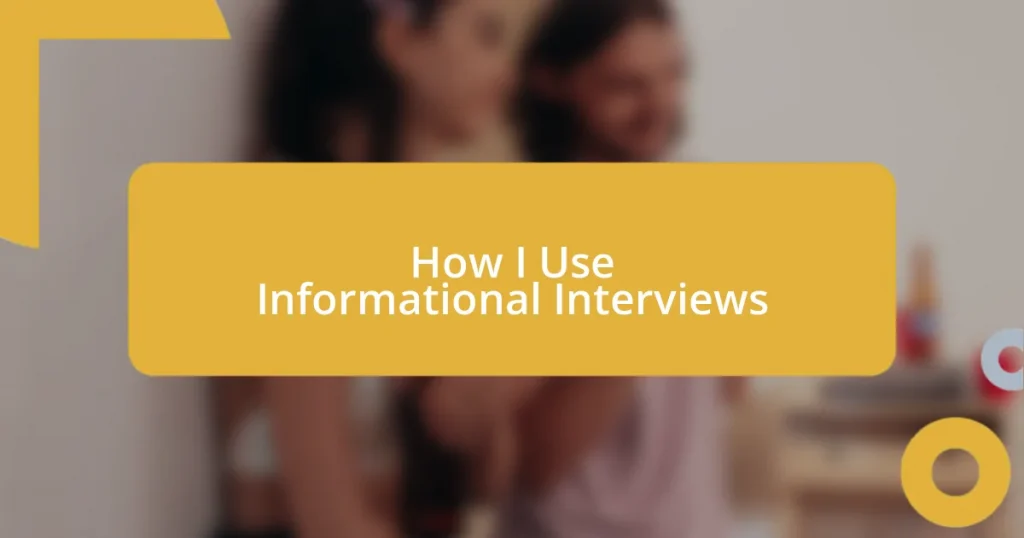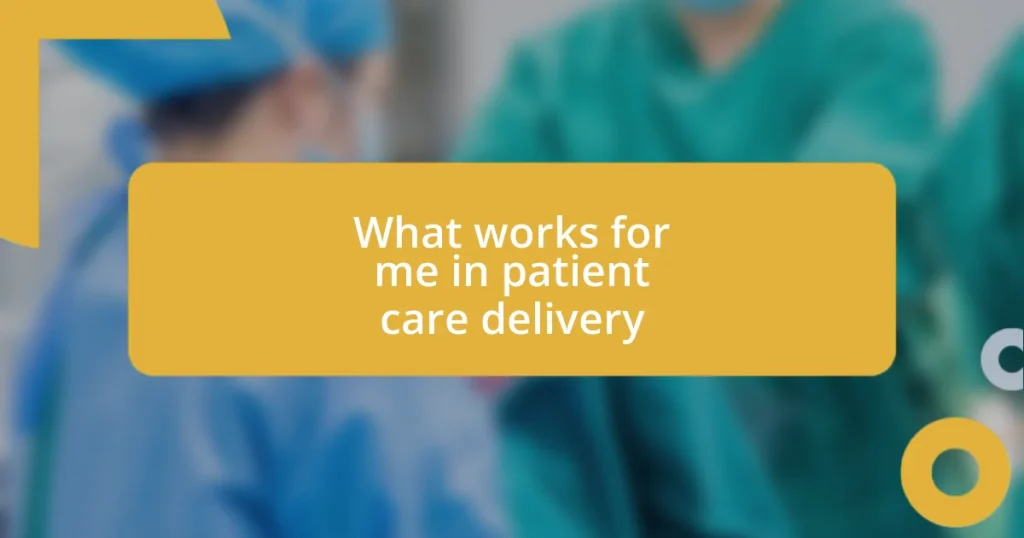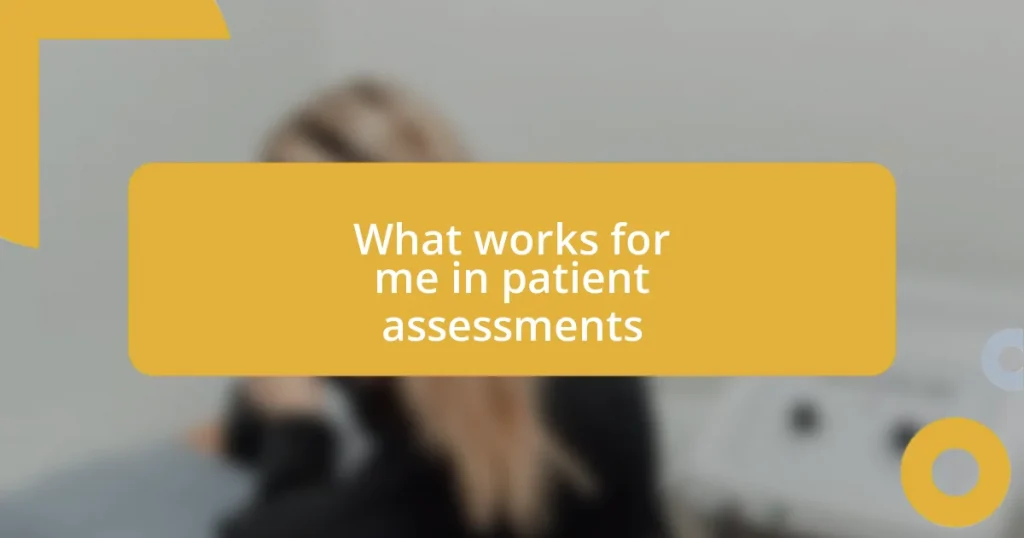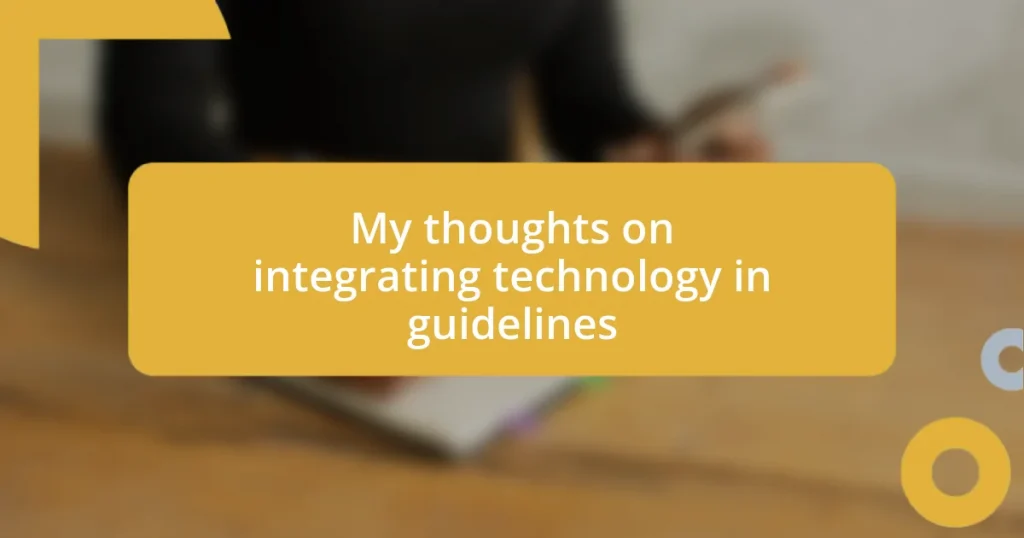Key takeaways:
- Informational interviews provide valuable insights into specific roles and industry trends, enhancing understanding beyond typical job descriptions.
- Preparing thoughtful questions and actively listening during interviews fosters deeper connections and reveals new perspectives.
- Following up with personalized messages can strengthen professional relationships and open doors for future opportunities.
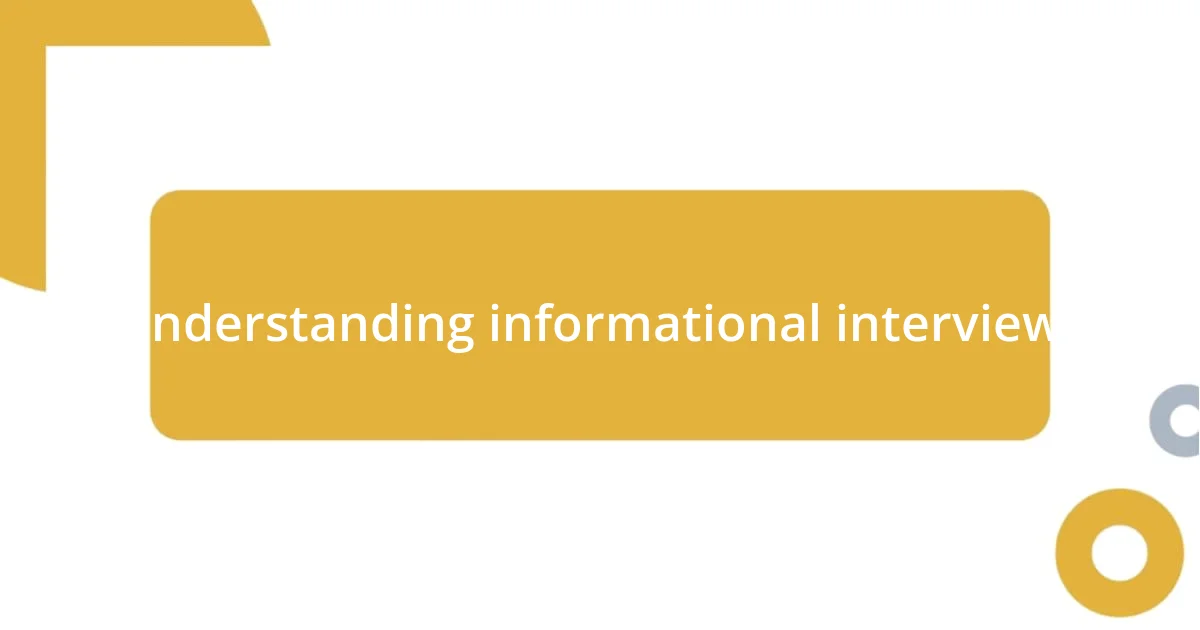
Understanding informational interviews
Informational interviews are more than just a networking strategy; they’re a way to gain insight into a particular field from someone who’s experienced it firsthand. I remember sitting down with a professional who had a career path that fascinated me. As we chatted over coffee, I realized these conversations aren’t just about asking questions – they’re about building connections and understanding the nuances of a role that you can’t find in a job description.
It’s important to approach informational interviews with curiosity and open-mindedness. I often go in thinking about what I can learn rather than how I can benefit someone else. Have you ever felt the weight of uncertainty when exploring a new career path? That’s why talking to someone who’s been there can transform your perspective. These discussions often reveal unexpected insights, like the challenges of a position or the joy of a project that truly excites them.
During one of my informational interviews, I uncovered industry trends through a simple discussion about their daily responsibilities. It was eye-opening to hear how they adapt to changes in their field. Isn’t it fascinating how a single conversation can shift your understanding and inspire new ideas? By truly listening, I discovered not just the ‘what’ of their job, but the ‘why’ that drives their passion, which fueled my own motivation to pursue a similar path.
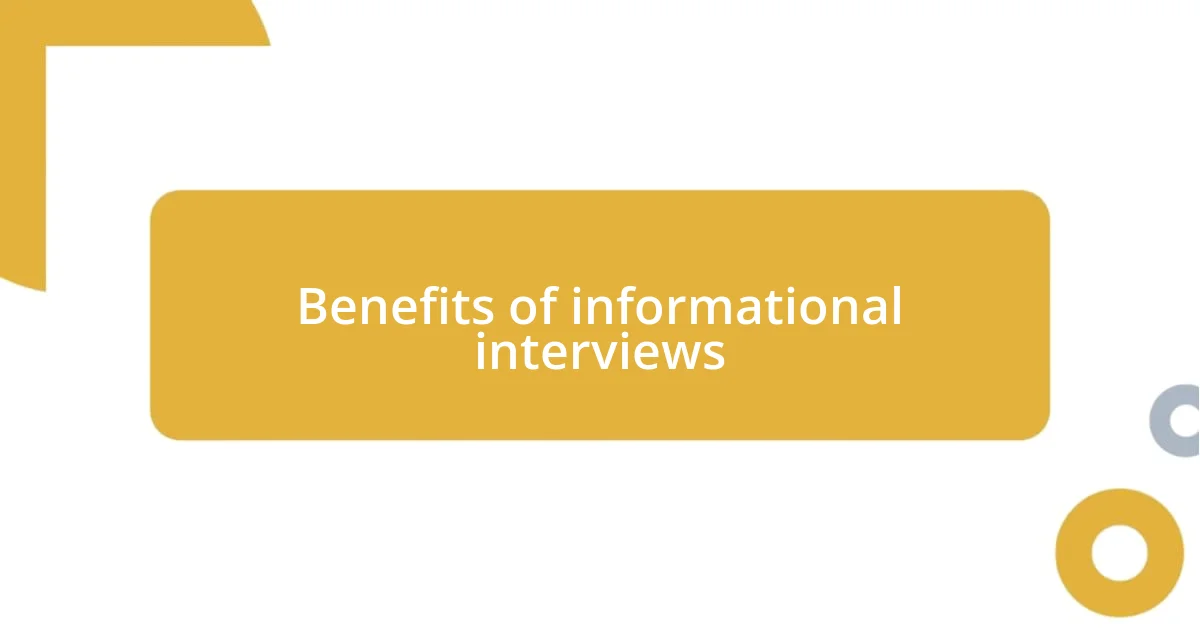
Benefits of informational interviews
Informational interviews serve as a golden opportunity to expand your professional network while learning invaluable insights about a chosen industry. For instance, during my first interview, I unexpectedly gained a mentor who provided guidance beyond that single meeting, which dramatically shaped my career trajectory. Have you ever met someone whose advice just clicks? Those moments can redefine your approach to a professional landscape.
In addition, these conversations often illuminate the hidden challenges and rewards of specific job roles, details that standard research may overlook. I remember discussing work-life balance with one interviewee who candidly shared how demanding the role was, despite its many perks. It was a refreshing reality check that highlighted the importance of understanding not just what a job entails, but how it fits into your life’s overall puzzle.
Lastly, informational interviews can boost your confidence by providing clarity about your career aspirations. After discussing my goals with a professional in my desired field, I felt empowered to pursue opportunities that previously seemed daunting to me. That feeling of empowerment is something I wish everyone could experience because it can truly be a game changer.
| Benefit | Personal Insight |
|---|---|
| Expanding your network | Building lasting connections boosts career opportunities. |
| In-depth understanding of roles | Discovering both challenges and rewards helps you make informed decisions. |
| Boosting confidence | Gaining clarity about aspirations empowers you to chase your dreams. |
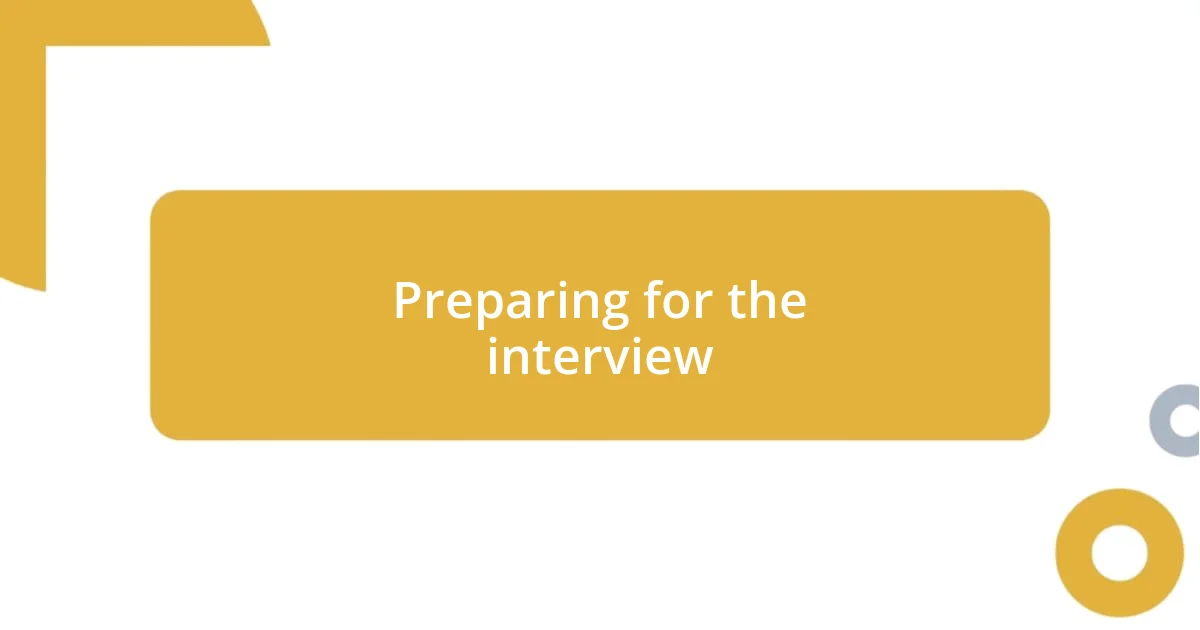
Preparing for the interview
When I prepare for an informational interview, I focus on a few key steps that really enhance the experience. I typically start by researching the person’s background and the company they work for, which gives me context for my questions. It’s like entering a conversation knowing the story so far, making it easier to dive deeper into interesting topics.
Here’s what I consider essential in my prep:
- Define your goals: Are you looking for industry insights, advice on skills, or a better understanding of job roles?
- Prepare open-ended questions: This encourages a rich dialogue rather than just yes or no answers.
- Take notes during the meeting: Jotting down key points helps me remember details and follow up later.
Additionally, I like to practice my questions out loud beforehand. It might sound silly, but rehearsing helps me convey my curiosity genuinely. Just the other day, I ran through my questions with a friend, and it made a world of difference during my actual interview. I felt more at ease, and that allowed me to engage more freely, leading to a conversation that felt natural and insightful. Nothing beats the feeling of building rapport while navigating through such a meaningful discussion!
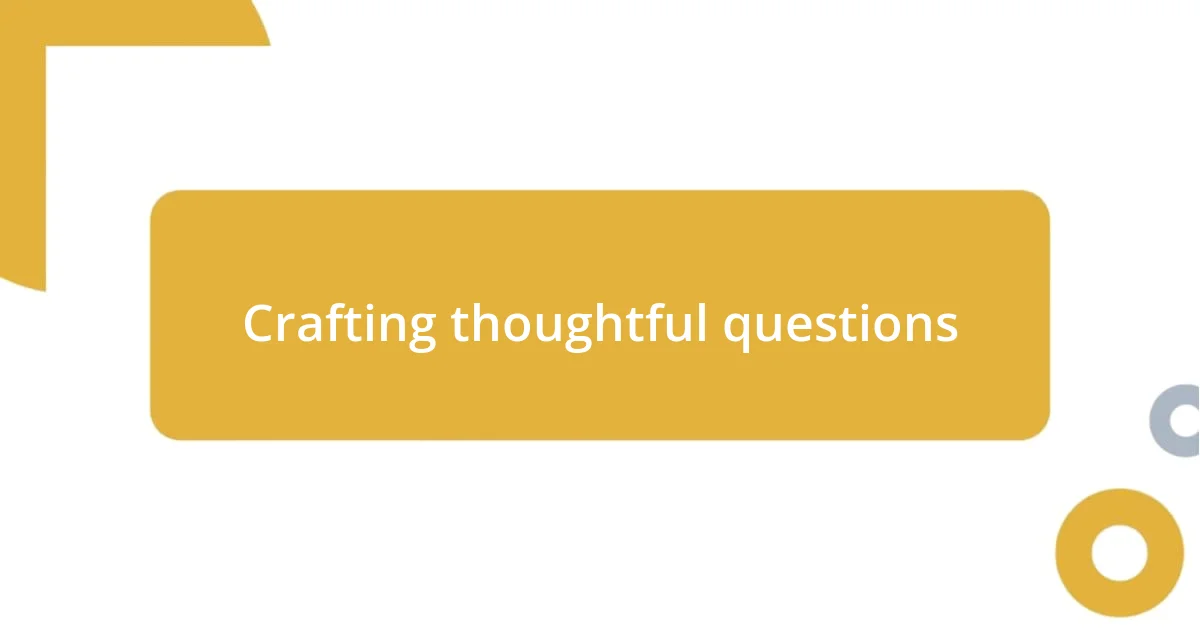
Crafting thoughtful questions
Crafting thoughtful questions is a crucial part of the informational interview process. I often find that preparing these questions ahead of time not only offers clarity on my intentions, but also builds confidence. I remember one time when I was nervous about my upcoming interview with a senior executive. I crafted questions about their career path and challenges they faced, and it made me feel more sure of myself. Did you ever think about how the right questions can truly unlock deeper conversations?
When I think about the questions I want to ask, I focus on their depth. I guide myself to avoid vague inquiries and instead aim for those that encourage detailed responses. For example, rather than merely asking, “What do you like about your job?” I prefer, “What specific aspects of your role bring you the greatest satisfaction, and why do they resonate with you?” This approach fosters a more engaging dialogue and gives me richer insights into their experiences. Isn’t it interesting how a slight change in wording can lead to a world of difference in responses?
After I’ve crafted my questions, I often prioritize them based on relevance and flow. During one interview, I felt the conversation shift naturally, and I was able to explore unexpected topics that emerged organically. Following the thread of a spontaneous conversation can lead to discovering insights I had not anticipated. It’s a reminder that while preparation is essential, being adaptable is equally vital. Have you found joy in letting conversations unfold naturally? It can sometimes reveal more than structured queries ever could.
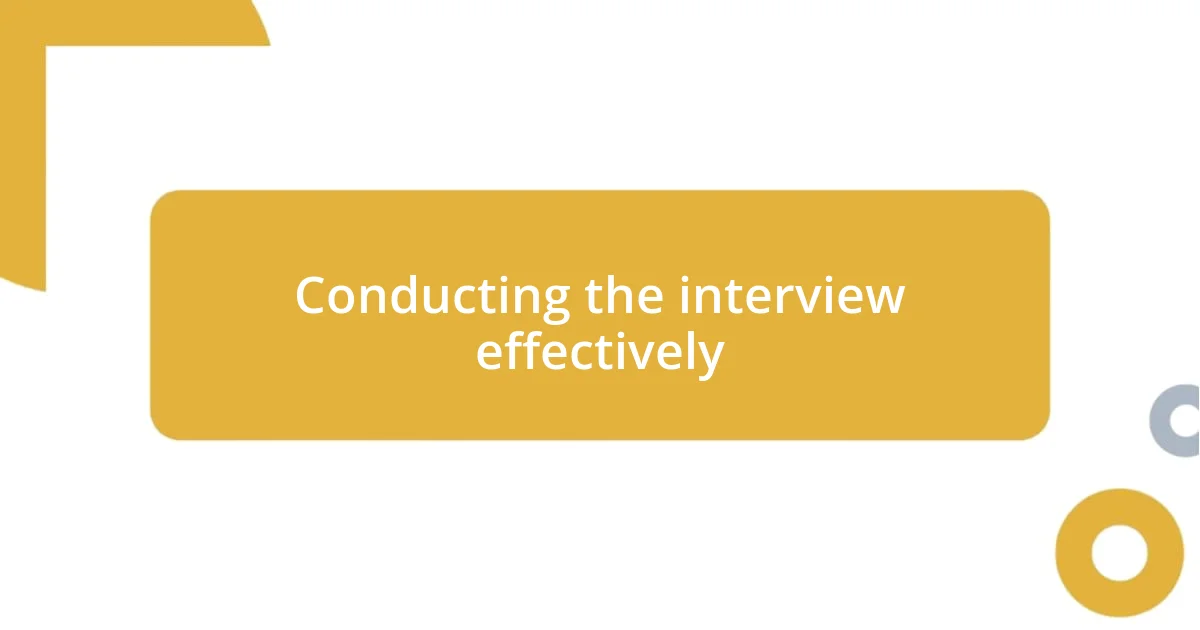
Conducting the interview effectively
Once the interview starts, I find that setting a friendly tone is key to fostering openness. I often begin with a light comment or a personal anecdote, something relatable that can break the ice. For instance, during my last informational interview, I mentioned a mutual interest in a recent industry trend, and it instantly made the atmosphere more relaxed. Have you ever noticed how a simple interaction can shift the dynamic of a conversation? It truly sets the stage for a deeper dialogue.
Listening actively is just as crucial. I remind myself to engage fully, nodding or responding to key points to show that I’m invested in the conversation. One time, I caught myself drifting off while thinking about my next question—definitely a missed opportunity. What I learned from that moment is that being present not only enriches the discussion but also helps me uncover insights I hadn’t anticipated, like when someone reveals their passion for their work. Isn’t it fascinating how much more we can learn when we focus on what’s being shared?
As the interview winds down, I always make a point to ask if there’s anything they’d like to add or if they have suggestions for further reading. During one memorable conversation, this led to a recommendation for a book that completely shifted my perspective on career growth. It made me realize that interviews can be a two-way street, where both parties share knowledge. Have you thought about how closing with an open-ended invitation can leave a lasting impression and also provide valuable takeaways? It’s a wonderful way to show appreciation and deepen the connection established during the chat.
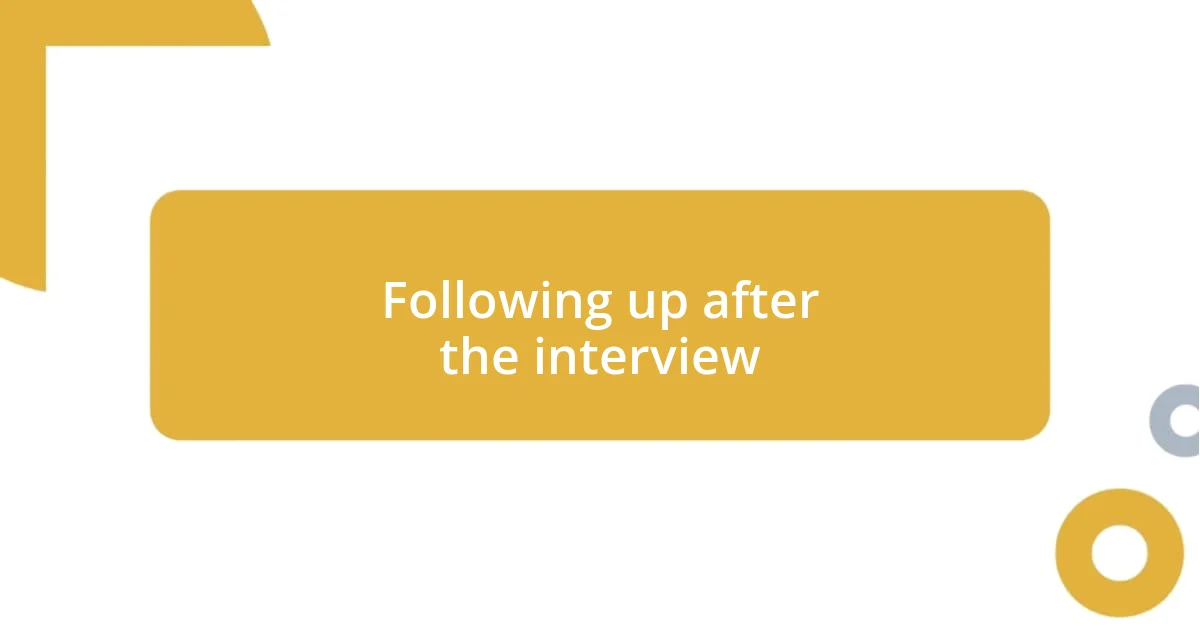
Following up after the interview
Following up after an informational interview is an aspect I cherish. I always make it a point to send a thoughtful thank-you email within 24 hours. It not only shows my appreciation for the time they spent with me but also reinforces the connection we formed during our conversation. I recall one instance when I sent a follow-up note detailing a specific insight they shared, which resulted in a warm reply and opened the door for future correspondence. Isn’t it rewarding when that simple gesture can pave the way for ongoing dialogue?
In my experience, I find it beneficial to include a personalized touch in my follow-up message. Mentioning a particular topic we discussed or a piece of advice they offered adds authenticity to my gratitude. For example, after an interview about navigating career transitions, I referenced the strategies they shared and how I plan to implement them. This approach not only communicates that I valued their insights but also keeps the conversation alive in their mind. Have you ever considered how a tailored follow-up can strengthen the impact of the initial meeting?
I also like to periodically check in with my contacts after the interview, especially if I come across an article or resource that aligns with their interests. Just the other day, I stumbled upon an industry report that echoed a point made by an interviewee. Sending it their way felt like nurturing a professional friendship. What’s fascinating is that these ongoing interactions often lead to unexpected opportunities, whether it’s introductions to other professionals or tips on job openings. How often do you take the time to reconnect? Those small gestures can lead to significant connections down the road.
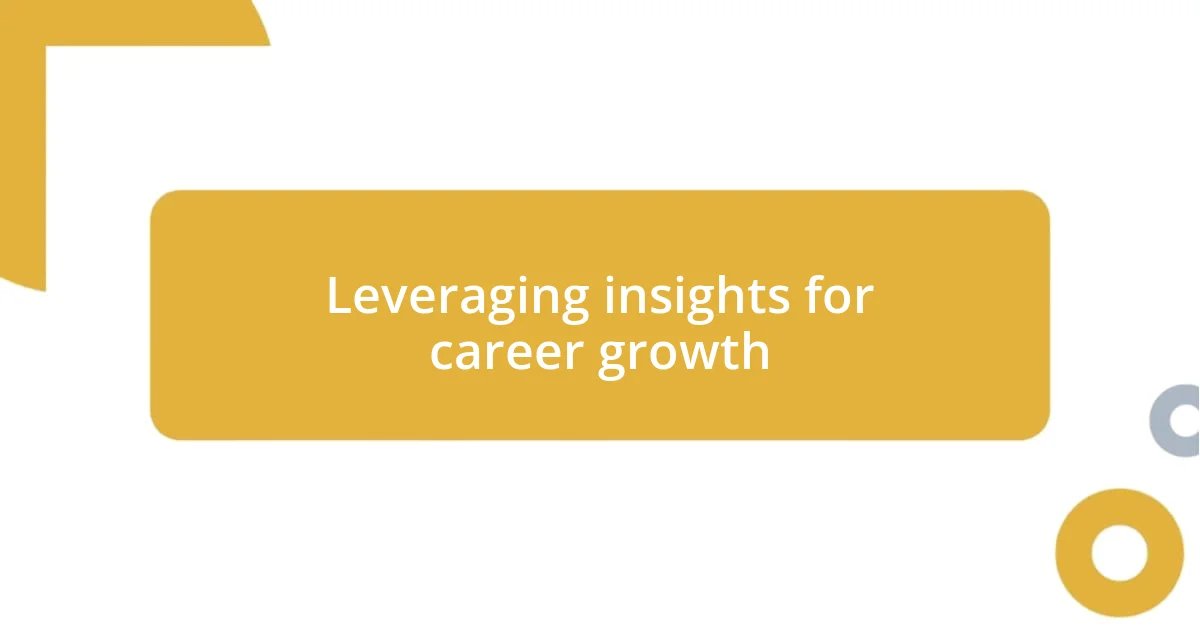
Leveraging insights for career growth
Leveraging insights from informational interviews has been a game changer for my career growth. I remember a conversation about navigating workplace challenges that opened my eyes to strategies I had never considered. When I applied those insights in my own role, I felt an immediate difference in how I approached problems. Have you ever had that moment when someone else’s experience really shifts your perspective?
I often find myself reflecting on the advice I receive during these interviews long after they end. There was a time when I learned about the importance of networking from an industry veteran. Inspired by that discussion, I took the initiative to attend local meetups. The connections I made there led to a job opportunity I hadn’t expected. Isn’t it amazing how one conversation can propel you forward in ways you never imagined?
Additionally, I leverage the insights gained by adjusting my career trajectory based on the trends and skills highlighted by those I interview. I once spoke with a professional who emphasized the rising significance of data analytics in our field. I took it to heart and enrolled in a relevant course, which ultimately positioned me as a valuable resource in my team. Have you thought about how staying attuned to industry shifts can not only enhance your skill set but also boost your marketability?


